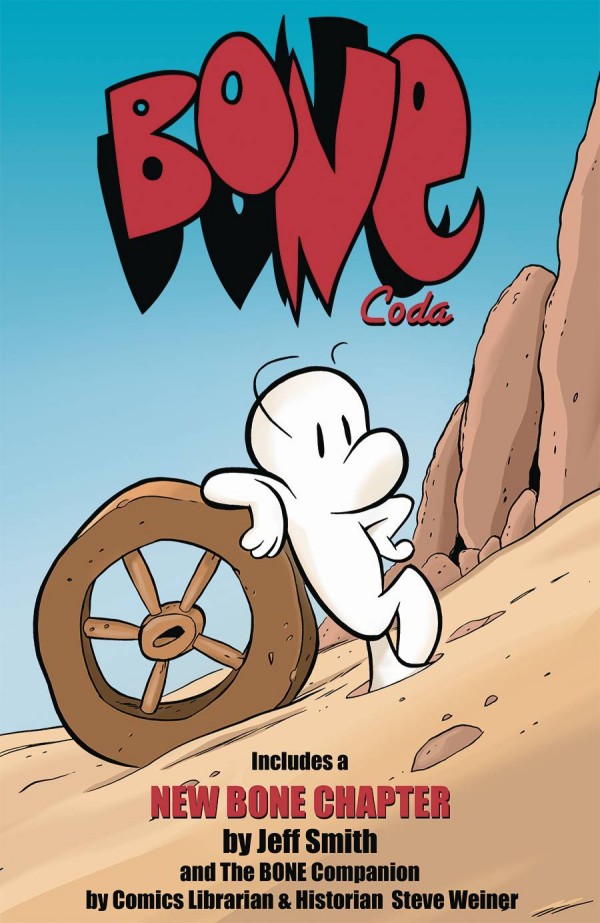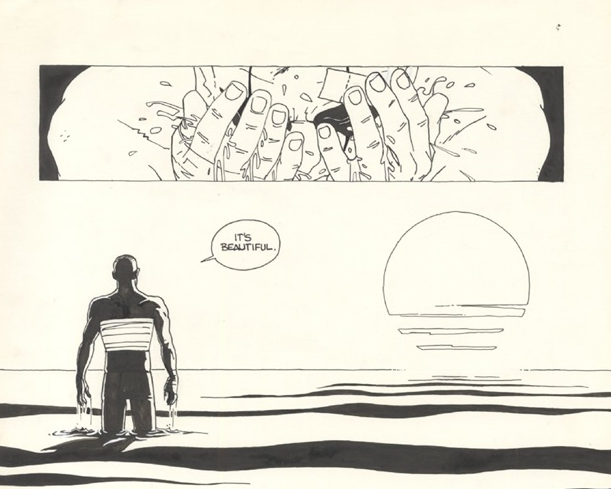Last weekend I had a chance to attend Comicpalooza in Houston, Texas, which was a terrific event. It was my first experience at this convention and I wanted to share a few comics-focused highlights.
 |
| A crowd scene at the George R. Brown Convention Center |
Comicpalooza is a big convention with a broad geek culture/scifi/fantasy/pop culture appeal; it's not specifically a comics-focused show. Thankfully for me though, there was a small-but-strong selection of comics creators, and I had a chance to speak with talented folks.
I spoke with Peter Gross, with whom I had a great discussion about his and Mike Carey's wonderful Unwritten, which I highly recommend. I also had a chance to meet Kurtis Wiebe and Tyler Jenkins, the creative team behind Peter Panzerfaust (reviewed here); I specifically spoke with Jenkins about how reading through the entirety of Peter Panzerfaust, one can clearly see his evolution as an artist. I caught up with Zack Kaplan, the writer of Eclipse (reviewed here), and we spoke about Eclipse and the story and in particular the great color work that Chris Northrop is doing; more specifically, the way that he over-saturates all of the outdoor scenes in order to effectively convey that the sun has made life on the Earth's surface truly uninhabitable. I had a great discussion about comics and conventions with Robert Wilson (Bitch Planet, Heartthrob) and hope to take a more in-depth look at Heartthrob soon. I caught up with David Baron, who in addition to his terrific work as a colorist (at Valiant, among other places) is expanding into writing a new comic called Stained with 451 Media Group, and he spoke about how his goal is to write a story that's both entertaining and thought-provoking. I also spoke briefly with David Finch and had a chance to tell him how much I enjoyed the action movie-style pacing in a recent issue of Batman.
I attended two panels at Comicpalooza. First up was a panel on Comics in Academia. There were three presenters - John Martin (Scholarly Communications Librarian, University of North Texas Libraries), Jason Helms (Assistant Professor of English, Texas Christian University) and Krista Gehring (Assistant Professor of Criminal Justice, University of Houston-Downtown). The focus of the panel was on the different ways in which comics and the graphic medium is making an impact in academia.
I spoke with Peter Gross, with whom I had a great discussion about his and Mike Carey's wonderful Unwritten, which I highly recommend. I also had a chance to meet Kurtis Wiebe and Tyler Jenkins, the creative team behind Peter Panzerfaust (reviewed here); I specifically spoke with Jenkins about how reading through the entirety of Peter Panzerfaust, one can clearly see his evolution as an artist. I caught up with Zack Kaplan, the writer of Eclipse (reviewed here), and we spoke about Eclipse and the story and in particular the great color work that Chris Northrop is doing; more specifically, the way that he over-saturates all of the outdoor scenes in order to effectively convey that the sun has made life on the Earth's surface truly uninhabitable. I had a great discussion about comics and conventions with Robert Wilson (Bitch Planet, Heartthrob) and hope to take a more in-depth look at Heartthrob soon. I caught up with David Baron, who in addition to his terrific work as a colorist (at Valiant, among other places) is expanding into writing a new comic called Stained with 451 Media Group, and he spoke about how his goal is to write a story that's both entertaining and thought-provoking. I also spoke briefly with David Finch and had a chance to tell him how much I enjoyed the action movie-style pacing in a recent issue of Batman.
I attended two panels at Comicpalooza. First up was a panel on Comics in Academia. There were three presenters - John Martin (Scholarly Communications Librarian, University of North Texas Libraries), Jason Helms (Assistant Professor of English, Texas Christian University) and Krista Gehring (Assistant Professor of Criminal Justice, University of Houston-Downtown). The focus of the panel was on the different ways in which comics and the graphic medium is making an impact in academia.
 |
| Presenters John Martin, Krista Gehring and Jason Helms |
Martin is working on bringing comics into the library, working on making comics as widely available as possible, and also involved in running and organizing conferences and workshops both for academic professionals and for students of various ages. Martin also helped put together an impressive exhibition of comics and comics-related materials that are now on display at the University of North Texas library.

Helms' area of focus is on the way in which making an argument graphically can change the nature of the argument itself. This began as his dissertation and has expanded to something broader called RhizComics (with an interactive expansion of that dissertation here).

Gehring teaches Criminology and found that the existing textbooks were often dry and boring, and given her love of comics and her awareness of them as an effective teaching tool, went about creating a comic textbook, to be published in a series of chapters, working with artist Michael Batista. The first three issues of CrimComics have already been published and are available here from Oxford University Press. She found that while there was initially some resistance to the concept of a graphic textbook, many people within her department were supportive (and it didn't hurt that lots of academics are also comics fans).

I also attended a panel called "Legal Do's and Don'ts of Fandom", presented by intellectual property (IP) attorney Ira Domnitz and compliance coordinator Krystal Ann Joseph. Domnitz spoke first, providing an overview on IP law and the different forms of IP rights (patent, copyright, trademark), the penalties for violating those rights, and some practical considerations for protecting your work and not infringing the work of others.
 |
| Presenters Ira Domnitz and Krystal Ann Joseph |
Joseph then spoke about another subject that's important and current - the issues of harassment and stalking, and more specifically, regarding behavior at conventions such as Comicpalooza, along with outlining the nature and consequences of those crimes. Comicpalooza (based on their website and signage through the convention hall) did seem to make a prominent push to remind people that "cosplay is not consent."
There were numerous panels each day on multiple subjects, along with celebrity signings and photo-ops. So, even if you went with someone less interested in comics themselves, there's still plenty to see and do. It was a fun event, and I'd be very happy to go again.






